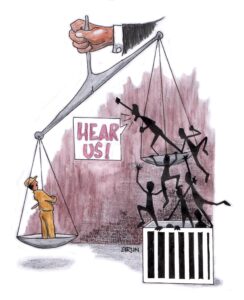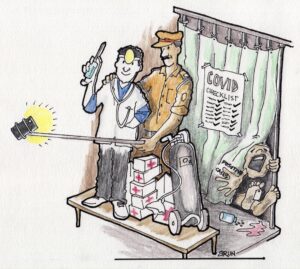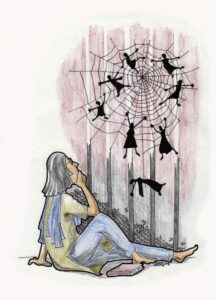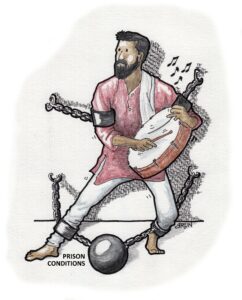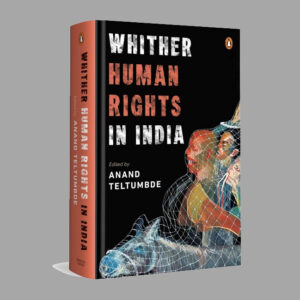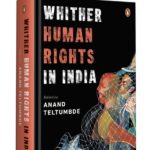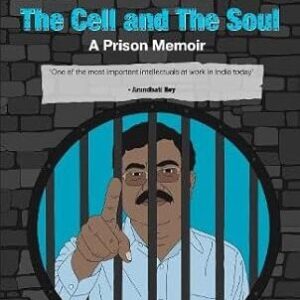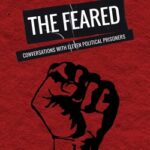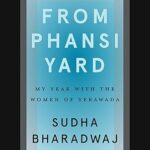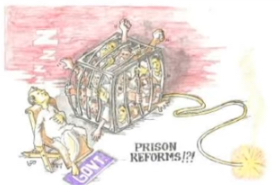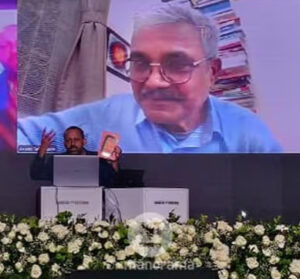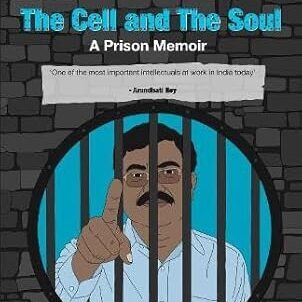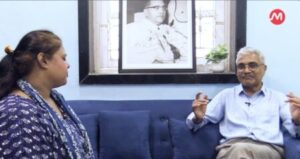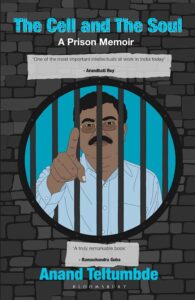Voices From Prison: Of Lives Stolen For Dissent – Various Accounts Of Political Activists

Voices From Prison: Of Lives Stolen For Dissent
20/01/2026
Outlook / by Outlook News Desk
Outlook’s February 1 issue, Thou Shalt Not Dissent, shines a light on the lives of political prisoners who were slapped with anti-terrorism charges and continue to face long trials and curbing of rights.
…
In Outlook’s February 1 issue, Thou Shalt Not Dissent, first-person accounts of political activists who were slapped with anti-terrorism charges under different political regimes, explore life behind bars, the trauma, sights and sounds of a world bereft of freedom, normalcy and reason. Weaved with the accounts are stories of individuals who carry the burden of incarceration like a tumour on the face, afraid to cover it, so it doesn’t chafe, and hesitant to let it free, so it does not translate into their only identity.
Read more
Voices From Prison: Life After Jail Is Tough, But Surveillance, Harassment Continue, Says Sudha Bharadwaj
20/01/2026
Outlook / by Sudha Bharadwaj
I am enormously relieved that the separation from my only daughter, Maaysha, has ended. We can speak to each other every day.
A couple of weeks ago, cops in civil dress—or so they claimed to be—arrived in the society where I live in a friend’s accommodation on rent. The police have my mobile number, which, no doubt, they monitor regularly. Besides, I report to the local police station every 14 days, and I regularly attend court dates, at least once every 15 days, if not more frequently. Despite this, the police did not bother to call me.
Read more
Voices From Prison: In The Isolation of the Anda Ward, We Dared To Sing, Writes Gautam Navlakha
20/01/2026
Outlook / by Gautam Navlakha
I realised that the more intense the sense of despair, the harder hope kicks in.
‘Those who speak of humanity in this system
Are thrown into prison to acquaint them
With the vocabulary of ‘criminology’’’
— Varavara Rao, Schools and Prisons
Hope and despair are basic human emotions and I believe that all human beings, now and then, swing between these two ends of the spectrum in life. I experienced these emotions acutely during my time in prison and captivity.
Read more
Voices From Prison: Alienating A Poet From A Language He Deeply Loves Is Painful, Writes Varavara Rao’s Daughter
20/01/2026
Outlook / by P Vanava
The poet and activist was jailed in connection with caste violence that erupted in 2018 in Bhima Koregaon. He was 78 then. Though he was released on medical grounds in 2022, he is still confined to Mumbai. In this first-person account, his daughter Pavana writes about how multiple incarcerations could not break her father’s strength and soul
…
This wasn’t his first arrest; he has been arrested many times in the past, since the Emergency in 1975, for his political activism. I was a newborn baby (a month old), when appa was arrested.
Read more
Voices From Prison: Bail Is Little Solace As I Lost My Life Anyway, Says Anand Teltumbde
19/01/2026
Outlook / by Anand Teltumbde
We became victims of two things—unjust investigation and a media trial that was used as a weapon. The Media Trial was Deeply Painful.
The tragic dimension of jail has been exhaustively mined. What remains scandalously underexplored is its comic genius. Prison is a factory of absurdity, running at full capacity every day, and I made it a habit to collect its specimens—especially during the so-called free hours, when the cells were opened each morning. This ritual began with the ceremonial clanking of batons, as guards slid them menacingly across steel bars, producing a sound—less like an alarm than a declaration of sovereignty.
Read more
Voices From Prison: What Happened In Bhima Koregaon Could Happen To You
20/01/2026
Outlook / by Alpa Shah
The Bhima Koregaon case is not only about those who were imprisoned. It is also about the fate of democracy itself
There are things in life that somehow wrap themselves around us. Things we never would have dreamed of doing—ideas that once seemed dangerous, crazy, or simply foolish. They arrive quietly, almost by accident, and before we know it, they surround us, occupy our thoughts, and slowly take over. Until one day, there is no turning back, and we can’t imagine thinking about anything else.
Read more
Also read:
▪Voices From Prison: Hope Remains A Stubborn Thing Even In Captivity, Says Umar Khalid (Outlook / Jan 2026)
▪ Voices From Prison | The Problematic Judgement in the Denial of Bail to Umar Khalid and Sharjeel Imam (Outlook / Jan 2026)
▪ Voices From Prison: Who Stole My Youth? Asks North-East Delhi Riots Accused Mohammad Iqbal (Outlook / Jan 2026)
▪ Voices From Prison: For GN Saibaba, Who Is No More, And Others Who Are Here (Outlook / Jan 2026)
▪ Voices From Prison: My Detention And Incarceration Were Preordained By Prejudice, Says Sidhique Kappan (Outlook / Jan 2026)
▪ Voices From Prison | Scars Of 17 Years Will Remain: Aparna Purohit On Lt Col Purohit’s Imprisonment In 2008 Malegaon Case (Outlook / Jan 2026)
▪ Voices From Prison | A Legacy Of Detention: Weaponisation Of PDA, TADA, NSA And UAPA Laws Since Independence (Outlook / Jan 2026)
▪ THE BK-16 PRISON DIARIES SERIES (THE POLIS PROJECT / JUNE 2024)
To mark six years of the arbitrary arrests and imprisonment of political dissidents in the Bhima Koregaon case, The Polis Project is publishing a series of writings by the BK-16, and their families, friends and partners. By describing various aspects of the past six years, the series offers a glimpse into the BK-16’s lives inside prison, as well as the struggles of their loved ones outside. Each piece in the series is complemented by Arun Ferreira’s striking and evocative artwork.
INTRODUCING THE BK-16 PRISON DIARIES SERIES (THE POLIS PROJECT / JUNE 2024)
▪ How Long Can the Moon Be Caged? Voices of Indian Political Prisoners
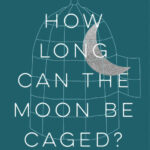
How Long Can the Moon Be Caged? includes visual testimonies and prison writings from those falsely accused of inciting the Bhima Koregaon violence, by student leaders opposing the new discriminatory citizenship law passed in 2020, and by activists from the Pinjra Tod’s movement. In bringing together these voices, the book celebrates the courage, humanity and moral integrity of those jailed for standing in solidarity with marginalised and oppressed communities.
Authors: Suchitra Vijayan and Francesca Recchia
Publishing Date: Aug 2023
Publisher: Pluto Press
Pages: 247
Read more / order

